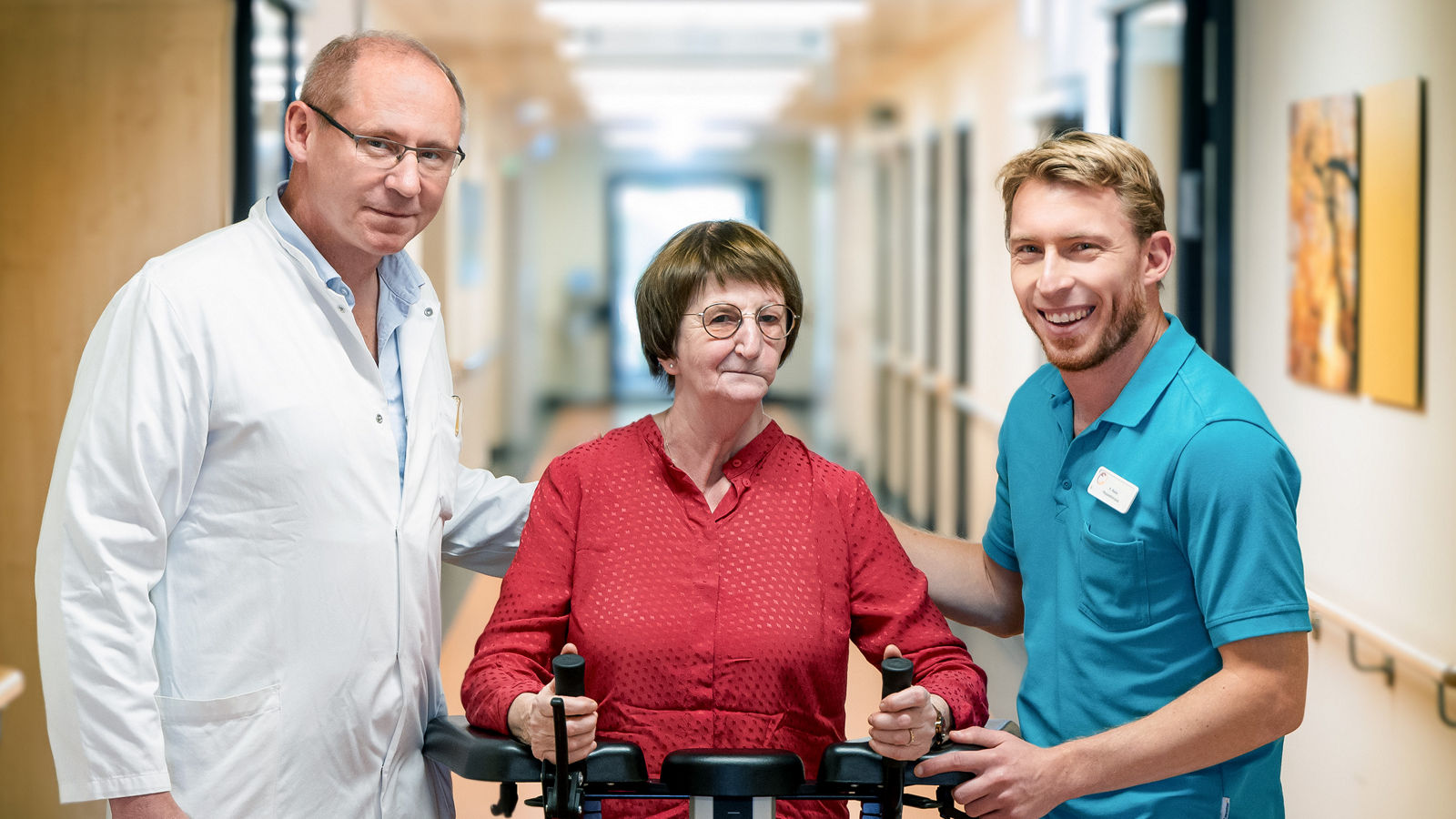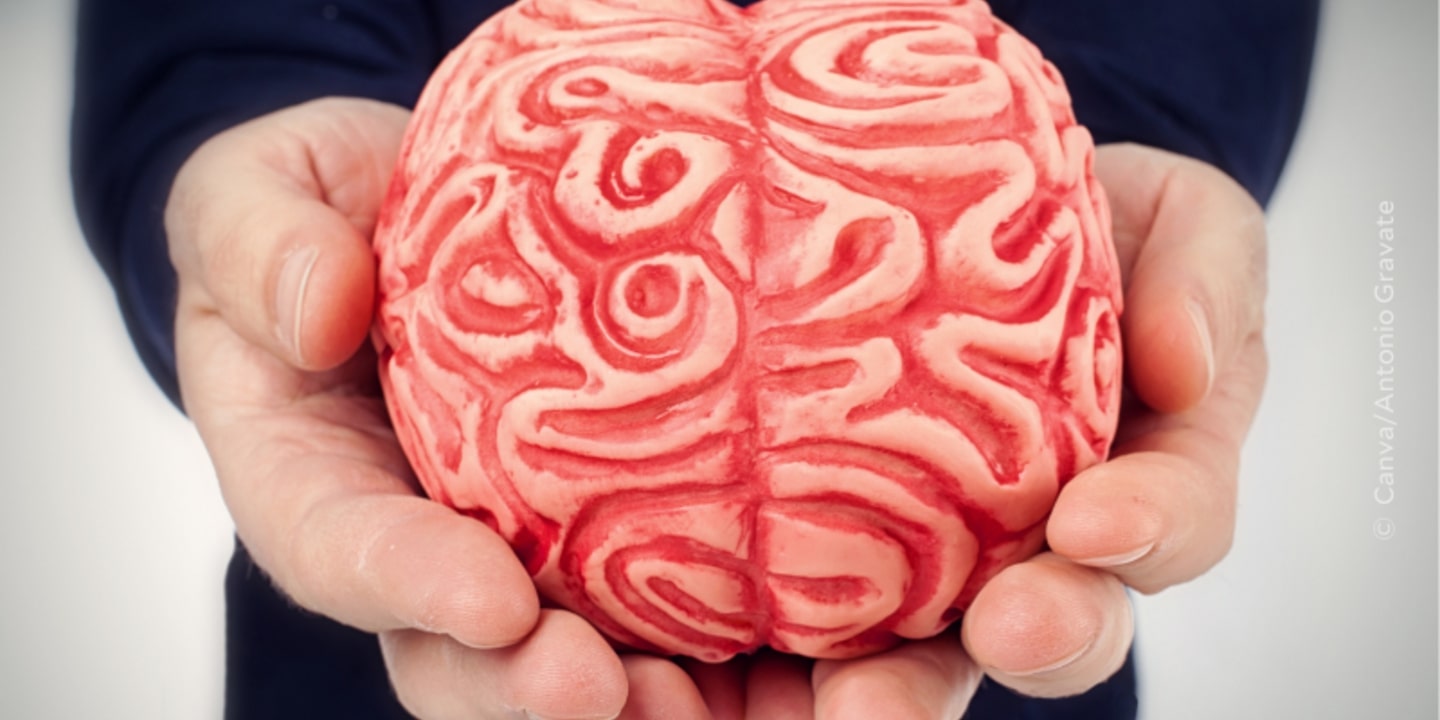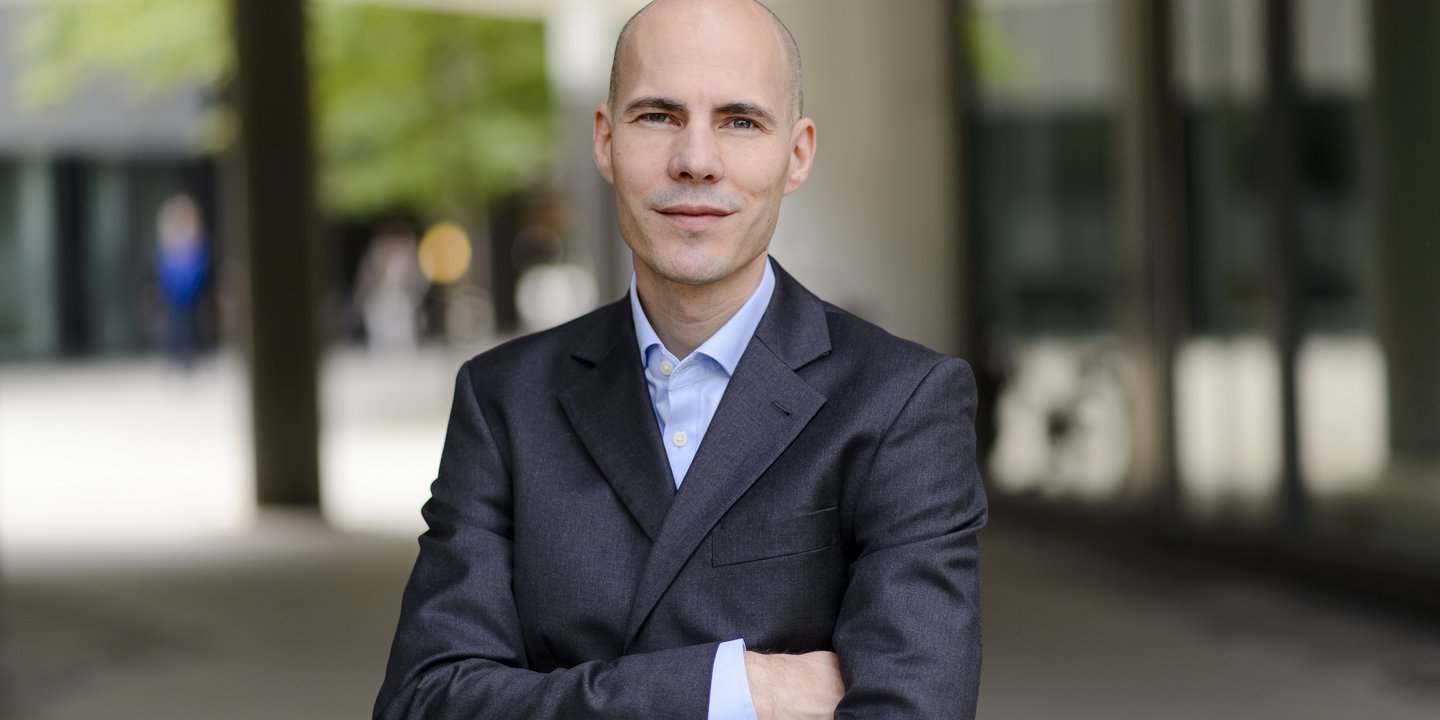
Miller-Fisher syndrome: A unique disease, a strong will - a story of hope and recovery
Monika Scholz from Teupitz suddenly experienced a dramatic turning point in her life when she was confronted with the symptoms of Miller-Fisher syndrome (MFS) in April 2023.
It all started with an infection and a prolonged, severe cough. This was accompanied by painful stool problems. Monika Scholz was barely able to enjoy Easter. Her GP diagnosed her with bronchitis.
Two days after the visit to the doctor, late in the evening, the 69-year-old suddenly felt pain over both eyes and could only see blurred. She was also concerned about her unsteady gait and high blood pressure. The symptoms worsened so rapidly that Monika Scholz had to be admitted to hospital with a suspected stroke.
After several examinations, a stroke was ruled out for Mrs. Scholz. Somewhat relieved by this news, but with no improvement in her symptoms, she was discharged from hospital.
Her symptoms worsened over the next few hours. Monika Scholz was barely able to walk. Extremely worried, she went to see her neurologist the day after she was discharged from hospital. He immediately referred the patient to the Helios Clinic in Bad Saarow.
Diagnosis Miller-Fisher syndrome
The examinations and tests carried out at the neurology clinic there revealed that Ms Scholz had Miller-Fisher syndrome (MFS): a rare variant of Guillain-Barré syndrome, which is characterized by inflammation of the peripheral nerves.
The results of the cerebrospinal fluid, blood and electrophysiological examinations showed severe inflammation of the peripheral nervous system in Ms. Scholz's case. In combination with the specific symptoms the patient had, this quickly led to the diagnosis.
"Miller-Fisher syndrome is characterized by muscle weakness, coordination problems and sensory disorders, which are often accompanied by a weakening of reflexes."
PD Dr. med. Konstantin Prass, MBA, Chief Physician Clinic for Neurology and Pain Therapy | Helios Klinikum Bad Saarow
Therapy
Ms. Scholz was immediately treated with intravenous immunoglobulins to modulate the immune response and reduce inflammation. The therapy helped to alleviate the symptoms and Monika Scholz gradually began to experience improvement. Physiotherapy was also added to the treatment plan to improve muscle strength and coordination. Slowly, she was able to move around with her walking frame again.
Recovery
During her recovery, Monika Scholz received a lot of support from her family and friends. The rehabilitation process was lengthy, but the now 70-year-old showed perseverance and impressive resilience. After four weeks of rehabilitation, she was finally able to return to her old life, albeit with a slow increase in exercise and under regular medical supervision.
"The first few days after the diagnosis were characterized by fear and uncertainty. The uncertainty about how my symptoms would develop was an enormous challenge for me. But I would like to emphasize that the quick and accurate diagnosis by the Bad Saarow neurology team was the key to my healing process," says the former nurse.



